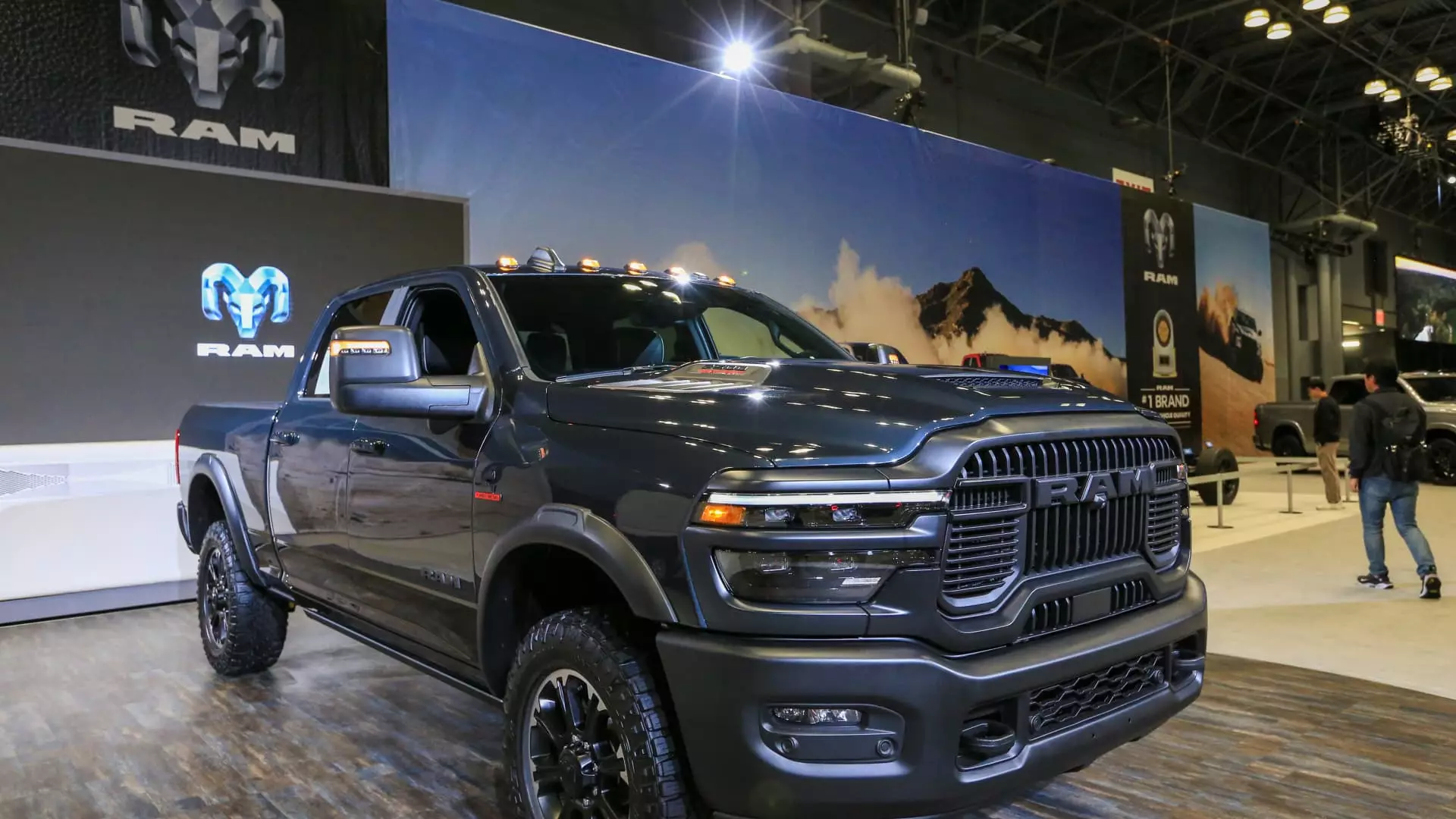10 Reasons Ram’s New Warranty is a Game Changer for Truck Buyers

In a pivotal move that could redefine the landscape for truck buyers, Ram Trucks has announced an ambitious 10-year/100,000-mile warranty covering critical components of their 2026 vehicle lineup. As industry analysts note an alarming rise in vehicle prices coupled with extending financing terms, Ram’s strategic decision to go beyond the typical five-year warranty feels both timely and essential. Drivers are no longer just consumers; they are making crucial long-term investments. The shift in truck ownership dynamics necessitates a rethinking of what warranties should look like. This change is not just customer-friendly; it’s a vital survival tactic for a brand desperately trying to reclaim its footing in a competitive market.
Warranties as a Reflection of Consumer Confidence
In a world where 85% of truck buyers opt for financing that can stretch beyond seven years, the introduction of a more robust warranty reflects a critical understanding of consumer needs. Buyers today are increasingly wary of long-term financial commitments, and they want assurances that will last as long as their payment plans. Ram’s warranty is a bold signal that the brand recognizes a fundamental shift in consumer psychology. It emphasizes a need not just for trust but also for accountability from manufacturers. If companies expect loyalty from their consumers, they must provide greater safeguards to ensure the longevity of their investments.
The Competitive Edge in a Tight Market
In a crowded field dominated by Ford and General Motors—who maintain their standard five-year warranties—Ram’s new offering places it in a commanding position. The warranty can serve as a substantial differentiating factor that attracts both new customers and lapsed ones who may have turned their backs on the brand. In an age of increased competition over market share, innovations such as extending warranties can be the proverbial cherry on top that tips the scales in favor of one manufacturer over another. It’s a smart play that demonstrates awareness, adaptation, and, frankly, a commitment to improving customer relations.
Risk versus Reward: A Calculated Gamble
One cannot overlook the inherent financial risks associated with providing extensive warranties; they could cost manufacturers billions if quality issues arise. Yet, Ram’s leadership appears undeterred. CEO Tim Kuniskis argues that the potential value perceived by the customer outweighs potential costs, a perspective that is both ambitious and pragmatic. It suggests that Ram is not merely interested in short-term profit margins, but rather in entrenched, long-term relationships with its customers. While such a risk could backfire, it potentially engages a demographic increasingly disenchanted with automobile manufacturers.
Long-Term Thinking in an Instant Gratification World
In a society characterized by instant satisfaction, the implications of Ram’s warranty extended over a decade run deeper than mere numbers. Longer warranties may inadvertently mean fewer vehicle sales in the future—after all, a consumer with a well-supported truck may not feel compelled to trade it in as often. Is this a drawback or an innovation? If Ram possesses the insight and strategy to dig deeper into after-sales services, they could change the way people perceive vehicle ownership. By encouraging buyers to see their purchase as a long-term investment, Ram may just foster a more loyal customer base that keeps coming back for future models.
A Call for Industry-Wide Changes
If Ram can successfully implement this revolutionary warranty, it may set a new benchmark industry-wide. Other automakers will undoubtedly feel pressure to follow suit or risk being left behind in the dust—something they cannot afford in this increasingly competitive environment. If consumers respond positively to these moves, it could usher in an era where longer warranties become not just the exception, but the norm. Given increasing vehicle complexities, both automakers and consumers alike would benefit from this kind of foresight and shared commitment as they head into an uncertain and expensive automotive future.
The Urgency of Adaptation
As Ram Trucks pushes forward, it’s clear that adapting to the evolving demands of consumers is critical for the manufacturer’s survival. It’s not just about selling vehicles; it’s about reshaping relationships and creating trust over time. With a renewed sense of purpose, they aren’t simply banking on better warranties; they’re fostering an ecosystem that questions traditional automotive norms, ultimately aiming for sustainable growth and consumer loyalty. By prioritizing customer experience through innovation, Ram is not only catching up in the race but potentially positioning itself as a leader in shaping the future of the automotive landscape.





